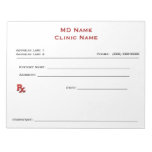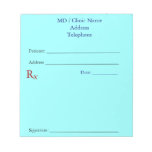Analytics programs are only good at transforming data into information. It is up to you to make it actionable. For many users, reports selected by software developers and their authors may not fit your unique needs. Selecting what looks like the right report off a menu is far less important than asking the right question and using system capabilities to get the right answers.
The key to effectively using analytics is not to ask which, but, to ask why.
Here’s an example of asking the right question and getting a totally unexpected answer:
Chronic Back Pain Conundrum
Standard claims analytic reports showed that the top diagnosis—and cost—in our patient population is chronic back pain. It breeds co-morbidity like weeds in an unkempt lawn and costs compound as does misery and debilitation.
In a deeper dive, standard reports provided detailed information on who, what, where, and when.
The most important questions, which the report did not answer, are: How? and Why?
But it did provide a clue. A substantial number of patients had either undergone physical therapy or had seen a chiropractor, but not both.
The natural question: Was one more effective, or expensive, than the other?
The answer was a complete surprise, going against convention, expectation, and even published evidence-based medicine and health plan protocols.
A customized study of thousands of patients showed that it is less expensive for those chronic back pain sufferers to see a chiropractor than to undergo physical therapy. And, not by a little. By over $2,400 per year. Each.
Another study approach corroborated the result.
That answered the how.
The “why” took more legwork.
The Value of Caring
Why is a therapy based upon decades of medical convention and science so resoundingly outperformed by one historically on its fringe? Whether science or psychology, results are results.
But this outcome should not have been so unexpected. The chiropractic practice model is warm, welcoming, caring, and sincere, and patients respond by feeling—and doing—better.
Dozens of studies show that staff and physician attitude materially affect everything from procedural outcomes to patient engagement in their treatment.
So fundamentally, good experience equals positive attitude. Positive attitude equals positive results, even in cancer patients.
Process vs. Curiosity
We are all process-oriented by profession—physicians, clinicians and administrators alike.
We are also curious by nature, our curiosity stifled by burdensome regulations, protocols, conventions, conceptions, culture, bureaucrats, litigators, regulators, and behavioral mores thrust upon us by the nature of healthcare, which wants us to be regimented and in lockstep.
As Thomas Jefferson famously said, “A little rebellion now and then is a good thing.”
Rebel. Be curious. Explore. Make the world a better place.
Inquisitiveness rarely leads to inquisition. It does lead to progress.




No comments:
Post a Comment